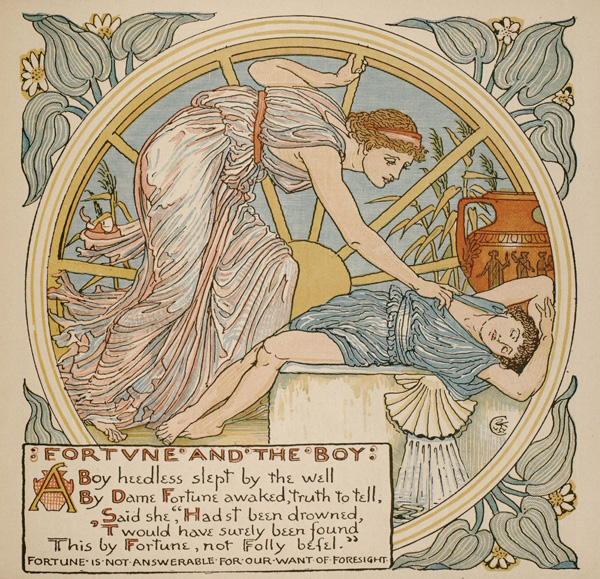ξίφος ~ ξίφους (noun n.): sword
ἄρτος ~ ἄρτου (noun m.): bread, loaf
στόμα ~ στόματος (noun n.): mouth
τρεῖς ~ τριῶν (number): three
τηρέω ~ τηρήσω ~ ἐτήρησα (verb): protect, guard
These are the proverbs (and there are always more proverbs at the blog):
῎Επεσε βοῦς καὶ πάντες τὰ ξίφη αὐτῶν ἦραν.
Ἄρτον τις φαφεῖν οὐκ ἔχων προσφάγιον ἐζήτει.
Καὶ τίς λέγει τῷ λέοντι ὅτι “ὄζει τὸ στόμα σου”;
Εἷς οὐδείς, δύο πολλοί, τρεῖς ὄχλος, τέσσαρες πανήγυρις.
Τήρει τὸν υἱόν σου, ἵνα μὴ πέσῃ εἰς τὸ φρέαρ καὶ εἴπῃς ὅτι ὁ θεὸς ἤθελεν.
῎Επεσε βοῦς καὶ πάντες τὰ ξίφη αὐτῶν ἦραν.
The ox fell, and everyone raised their swords.
As the accompanying gloss on the proverb explains, when the rich person experiences a downturn in their circumstances (the ox who has fallen), all the poor people will take their revenge (everybody with their swords). Compare the Aesop's fable about the old lion who is insulted by the other animals, including the donkey: The Old Lion.
Ἄρτον τις φαφεῖν οὐκ ἔχων προσφάγιον ἐζήτει.
Someone didn't have bread to eat but was looking for relish.
This is proverbial foolish foolish behavior: if you don't have any bread, the relish isn't going to do you any good. Notice the play on words in the Greek: the "relish" is something "goes-with-eating," προσφάγιον, which won't work unless you have something to eat, φαφεῖν.
Καὶ τίς λέγει τῷ λέοντι ὅτι “ὄζει τὸ στόμα σου”;
And who says to the lion (that), "Your breath stinks."
Literally, it is the lion's "mouth," στόμα, that stinks. There is an actual Aesop's fable about the lion's stinking breath; in that fable, the lion asks the animals to tell him if his breath stinks or not, looking for an excuse to get angry and kill the animal — when the monkey instead flatters the lion by saying he has sweet breath, the lion finds another excuse to kill him.
Εἷς οὐδείς, δύο πολλοί, τρεῖς ὄχλος, τέσσαρες πανήγυρις.
One is no one, two are plenty, three is a crowd, and four is a festival.
Compare the English saying, "Two's company, three's a crowd." I like the paradoxical start to the Greek proverb: Εἷς οὐδείς... "one is no-one," οὐ(δ)-είς.
Τήρει τὸν υἱόν σου, ἵνα μὴ πέσῃ εἰς τὸ φρέαρ καὶ εἴπῃς ὅτι ὁ θεὸς ἤθελεν.
Guard your son so that he does not fall into a well and you have to say that it was the god's will.
There is a similar Aesop's fable where Luck warns someone sleeping by a well not to do that, since she will take the blame: Fortune and the Boy. Here's an illustration by Walter Crane:

And here's a random proverb and a random LOLCat too:
No comments:
Post a Comment